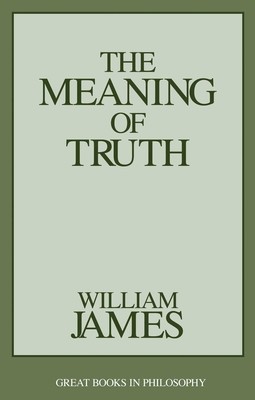
- We will send in 10–14 business days.
- Author: William James
- Publisher: Prometheus Books
- ISBN-10: 1573921386
- ISBN-13: 9781573921381
- Format: 14 x 21.5 x 2.7 cm, softcover
- Language: English
- SAVE -10% with code: EXTRA
Reviews
Description
Preeminent American philosopher and educator John Dewey (1859-1952) rejected Hegelian idealism for the pragmatism of William James. In this collection of informal, highly readable essays, originally published between 1897 and 1909, Dewey articulates his now classic philosophical concepts of knowledge and truth and the nature of reality. Here Dewey introduces his scientific method and uses critical intelligence to reject the traditional ways of viewing philosophical discourse. Knowledge cannot be divorced from experience; it is gradually acquired through interaction with nature. Philosophy, therefore, has to be regarded as itself a method of knowledge and not as a repository of disembodied, pre-existing absolute truths.
EXTRA 10 % discount with code: EXTRA
The promotion ends in 18d.21:02:04
The discount code is valid when purchasing from 10 €. Discounts do not stack.
- Author: William James
- Publisher: Prometheus Books
- ISBN-10: 1573921386
- ISBN-13: 9781573921381
- Format: 14 x 21.5 x 2.7 cm, softcover
- Language: English English
Preeminent American philosopher and educator John Dewey (1859-1952) rejected Hegelian idealism for the pragmatism of William James. In this collection of informal, highly readable essays, originally published between 1897 and 1909, Dewey articulates his now classic philosophical concepts of knowledge and truth and the nature of reality. Here Dewey introduces his scientific method and uses critical intelligence to reject the traditional ways of viewing philosophical discourse. Knowledge cannot be divorced from experience; it is gradually acquired through interaction with nature. Philosophy, therefore, has to be regarded as itself a method of knowledge and not as a repository of disembodied, pre-existing absolute truths.


Reviews